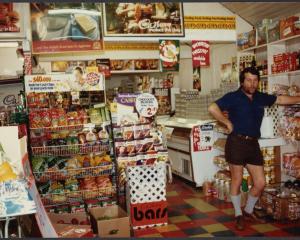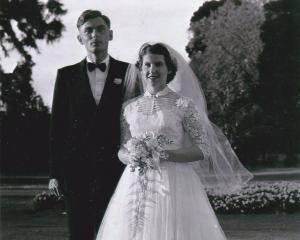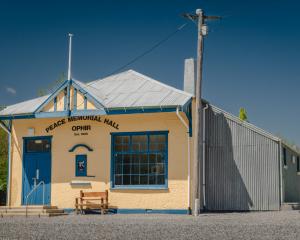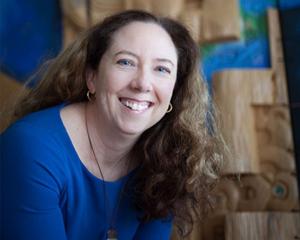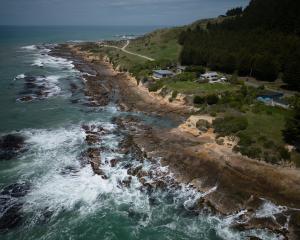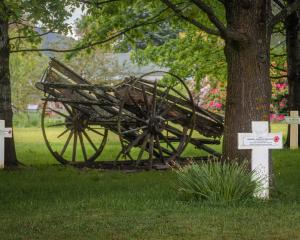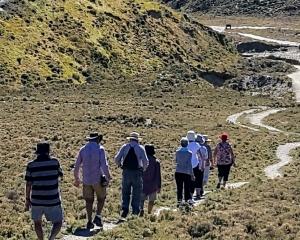Showjumping and horse eventing are highly competitive worlds.
Colourful ribbons draped around a horse's neck are hard fought for.
Riders hone their skills through years of practice.
Hundreds of hours of work go into the sleek, muscled horses with their shiny coats.
They pay tens of thousands of dollars for top-notch jumpers. Some even shell out upwards of $100,000 to import top-end warmblood horses.
So when a "$300 bush pony" beats them all, the success is intoxicatingly sweet. Such satisfaction, however, does not come without the hard graft.
Every day, Elizabeth Sheat's alarm buzzes at 6.30am. Rain, hail, shine, and even snow, the 27-year-old is out the door and on her first horse by 8.30am.
She rides all day, until dark. Yesterday, she worked 14 horses.
Most of the horses are "rejects", ex-racehorses whose sweet nature gave them a last-minute reprieve from the meatworks, or other people's problems.
Common issues include horses that buck, rear or nap, when they spin beneath the rider and bolt for home.
"As long as it's not going to put me in hospital I try them out."
Her mother, Shirley, who has ridden horses herself for nearly all of her 60 years, says she still gets "that horrible feeling in the bottom of your stomach" when she sees a horse "suddenly turn loopy" underneath her daughter. But Miss Sheat says she is always careful.
"If a horse is being all silly when I bring it in, I'll leave it."
She has to be vigilant. Riding is what pays the bills.
Her aim is to transform these rejects into quality competition jumping horses and good all-rounders.
A few months ago, she took in a horse about to be "fed to the hounds". It now has a buyer happy to pay $7000.
Many horses that "buck, or carry on" are usually sore somewhere, she says. Most problems come down to the horse's teeth, back or bad riding.
Patience is the hardest part of her job.
When a horse has potential, care is needed not to ruin them by pushing too hard and too fast.
"They have all got different personalities. You can spend a lot of time with them to bring out their personality, especially if they have been neglected, and see them blossom into a nice horse."
About 20 horses a year find new homes around the country, thanks to Miss Sheat.
Most of them sell for anywhere up to $10,000, but she aims for at least one horse a year to fetch between $15,000 and $20,000.
"You pick the one you think is going to be the superstar of the bunch that summer and really push it."
Her best sale went for $25,000.
But while the figures sound impressive, hay, hard feed, show entries and diesel costs soon eat into profits.
"[Horses] are good for a lifestyle, but not to pay the bills.
"It is your hobby, and your job, and your passion. There is no other life for me outside of horses at the moment. You would have to be crazy to want to do it."
Most of her money is made not by on-selling, but by schooling and reschooling other people's horses for them, she says.
It even helped put her through university, where she studied for a BCom, majoring in marketing and management.
While she might not work all day in a business suit, or spend it tied to a computer screen, she is away every weekend, from October through until Easter, marketing her product.
"Going to [horse] shows is like my day in the office. You do all the training and then you have to go and show people what the horse can do."
However, her life turning around horses on her parents' property, Springbank Farm, near Palmerston, is likely to end this year.
Miss Sheat's non-horsey, surf lifesaving partner lives in Dunedin and she plans to move to the city.
"I've got to move on. I can't play ponies forever."
Miss Sheat grew up always with "horses everywhere".
Even now, standing at the back door in the sunshine, a pretty grey wanders up for a scratch.
The nearby hills are dotted with broodmares and youngsters. There are about 30 horses on the farm, including those she is working and her mother's riding school horses.
Basil, her first pony, arrived when she was 4 years old.
Her great-grandfather and grandfather worked with horses and her mother still rides, competes in the jumping ring and instructs others.
It is fun to go for rides together, Miss Sheat says.
However, while she likes to deal just with horses, her mother is good with people, with whom she loves to share her own love of riding.
Mrs Sheat began instructing at pony club when she was a teenager and has never looked back.
She continues to inspire the next generation of riders on school holiday camps for horse-mad children, help nervous first-time adult riders overcome their fears, and has even taught a one-legged woman to ride.
"It is a passion and I love to share it."
But turn the talk to jumping and the 60-year-old's eyes really start to sparkle.
"I love round-the-ring jumping because you can really let rip."
Mrs Sheat admits her time for point to points - steeplechasing for amateur riders - is probably up, but she still thinks nothing of clearing 1.5m on a horse or sailing over a full wire fence.
"It is probably easier to go for a ride and get your shot of adrenaline than to take a whole lot of pills and medication.
"Now I'm old and arthritic, if I don't ride, I seize up."
The riding is not always easy though.
Mrs Sheat was recently "very embarrassed" when she "managed to fall off a horse and down a steep hill".
She climbed back on and rode for another half hour, before her daughter took her to the local medical centre.
Doctors there called the rescue helicopter to fly her to Dunedin Hospital when they diagnosed a broken hip, broken ankle and broken ribs.
She's tough and just keeps going, her daughter says.
And keeping going is exactly what Mrs Sheat plans to do.
It is likely nothing, short of a coffin, will stop her riding, she says.
Her husband claims, if she could, she would take her favourite horse, the gentle Thelma, to bed with her at night.
Mrs Sheat says horses have their own language.
"You can tell what they're thinking. Most of the time they are really nice and they are happy to see you. Sometimes they just want a scratch or a cuddle.
"Often, I find they are nicer than people."
For Miss Sheat, however, with so many horses passing through her hands, she tries not to get too attached.
Occasionally however, they manage to sneak through her guards.
Seven years ago, a rough little bush pony nicknamed Ducky and "bred for the local rodeo to buck", stole her heart.
The 15.2hh Clydesdale-cross was originally supposed to only be for trekking, but "she wanted to jump".
Miss Sheat paid $300 for the 2-year-old, who went on to become her top competition horse.
Ducky has outjumped horses worth tens of thousands and more, and was placed fifth in the country in her age group.
Jemima Puddleduck, who is 9, is the only horse she has kept.


